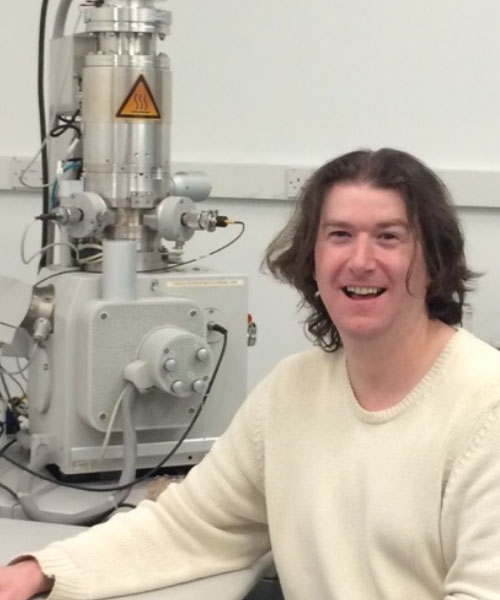Haogang Cai
Health Technology and Engineering Institute and Department of Radiology, at New York University Grossman School of Medicine
Nanofabrication for Probing Cellular and Biomolecular Interactions
Cell mechanobiology investigates how cells sense and respond to physicochemical factors of the extracellular microenvironment though receptor-ligand interactions, with promissing applications in nanomedicine and mechanomedicine. In order to develop novel nanomaterial-based therapeutics, it is crucial to probe cellular and biomolecular interactions at the nanoscale and single-molecule level, investigate the optimal ligand presentation and arrangement to manipulate important receptor signaling and cellular functions. We will outline various nanofabrication approaches from block copolymer self-assembly to top-down nanolithography (e.g., electron beam lithography, nanoimprint lithography). We will also highlight a dielectric (TiO2) nanopatterning and functionalization technology, which eliminates the plasmonic quenching effect of conventional metallic (Au) nanopatterns, thus enabling super-resolution imaging and mechanistic dissection of molecular-scale signaling events in conjunction with nanoscale geometric manipulation.
About Haogang Cai
Professor Haogang Cai is an assistant professor in the Health Technology and Engineering Institute (Tech4Health) and Department of Radiology, at New York University Grossman School of Medicine. He has a cross-appointment with the Department of Biomedical Engineering, and is also a member of the Perlmutter Cancer Center, NYU Langone Health. Before joining NYU in 2020, Dr. Cai had postdoctoral trainings in the Department of Biological Sciences at Columbia, and the Center for Nanoscale Materials at Argonne National Laboratory respectively. He received his PhD from the Department of Mechanical Engineering at Columbia University in 2016.
Dr. Cai is a receipt of numerous awards, including 2022 Maximizing Investigators’ Research Award (MIRA) from National Institute of Health (NIH), 2025 CMBE Rising Stars Award from Biomedical Engineering Society (BMES), 2025 Pilot Award from the Parekh Center for Interdisciplinary Neurology (PCIN). He was also invited as a visiting professor at the Inria Research Center, Université Côte d’Azur, Sophia Antipolis, France (2025). As a long-time participant in the EIPBN conference, he received EIPBN travel awards (2013-2016), his publication in the EIPBN proceeding was selected as the Editor’s Pick of JVSTb (2013). He received an Outstanding Reviewer Award from IOP Publishing (2021), and serves on the Youth Editorial Board of Med-X (Springer Nature). Dr. Cai’s research interests span multidisciplinary topics including biomedical and nanoengineering, optical metasurfaces for bioimaging and biosensing, cell mechanobiology and immunology.

Nanofabrication for Probing Cellular and Biomolecular Interactions
Date: Tuesday, May 27
Time: 10:40 - 11:35 am
Location: Scarbrough 1, 2




